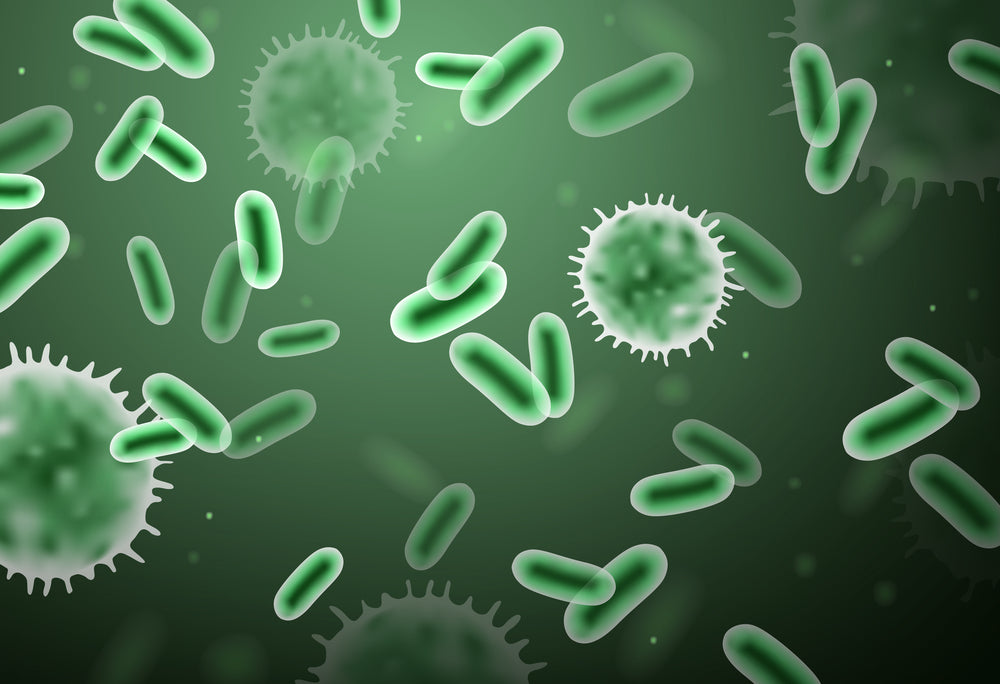
How to Get Good Bacteria in Your Mouth
|
Time to read 6 min
|
Time to read 6 min
The mouth is home to millions of bacteria. These bacteria are constantly interconnected and level with each other. This delicate balance can lead to many common problems in oral health.
Bad bacteria can cause severe problems in your oral health. Although good bacteria can help offset the effects of this situation, poor oral hygiene reduces the ability of the bad bacteria to be defeated. This imbalance in the microbiome of your mouth is often responsible for plaque buildup, enamel loss, and even gum disease.
How can you ensure that your body has enough good bacteria to fight off the negative effects of bad bacteria? It is much easier to maintain a healthy microbiome than you might imagine. Some bacteria can be helpful in keeping your mouth alkaline. They also help to digest food and increase saliva flow. It is better to eliminate the bad bacteria and keep the good ones happy than go for the nuclear option when dealing with bacteria.
Take a look at the tips below for encouraging the growth and development of good bacteria while discouraging harmful bacteria in the mouth.
Scientists in this field believe that increasing the intake of plant-based foods such as fruits, vegetables, legumes, and lentils is a good place to start. These foods are the best food that kills bacteria in the mouth. You should eat less animal products, but incorporating some plant-based nutrients into our diet could promote healthy bacteria in our microbiome and a healthier oral environment. Eating plant-based foods can be the best way to kill bacteria in the mouth.
Sugary foods and drinks are often the worst for teeth. Scientists believe that high sugar intake may have a negative impact on oral bacteria, which encourages the growth of acid-loving, acid-producing bacteria such as Streptococcus Mutans. These bacteria can cause cavities and hinder other beneficial bacteria.
Water is an excellent way to keep your mouth hydrated and clean. It is a great way to wash away food particles and eliminate the potential breeding ground for bacteria. For those with low saliva production, increasing your water intake is especially important. Saliva is essential for removing food particles from the mouth and maintaining moisture. Bad bacteria can thrive in a dry mouth, which makes it easier for them to grow and overtake the good bacteria.
While you cannot eliminate all the bacteria in your mouth, you can make it more difficult for them to grow. Bad bacteria love to nestle between your teeth and gums, contributing to periodontal disease. Regular flossing and brushing will keep bad bacteria under control and prevent them from growing. Brush your teeth twice a day, especially after every meal. Floss at least once per day before you brush.
Acidic drinks can have the same effect on good bacteria as sugary drinks. They promote bad bacterial growth and put additional strain on the good bacteria. Sugary and acidic environments are conducive to harmful bacteria, which can disrupt the balance of your microbiome. It doesn't mean you have to stop drinking your morning coffee. The key is to limit how much you drink and to ensure you regularly brush your teeth and drink water to combat harmful bacteria.
It's a fact that smoking has a significant impact on your oral and overall health. When it comes to the bacteria in your mouth, Research suggests that nicotine may reduce your ability to fight the bacteria that cause inflammation. This is the main reason why smokers are more susceptible to developing periodontal disease.
Everybody has some good and negative bacteria in their mouths. Although we cannot eradicate all bad bacteria, we can make it less likely for them to grow. Good oral health starts with good brushing and flossing. Avoid sugary and acidic foods and drink plenty of water to ensure your teeth and gums stay healthy for many years.
Diabetic? Fluctuations of blood glucose may cause problems with oral bacteria. Try to manage your blood glucose levels. If you live with diabetes, making sure it is well-managed may be an important part of good mouth care.
All the bacteria in your mouth are not bad. Bacteria often have a bad reputation because they are often linked to illness or infection. Both "good" and "bad" bacteria are stored in the gut. Good bacteria are bacteria that have a positive effect on the body's health. Bad bacteria can still exist in the body at low levels, but an imbalance between good and bad bacteria can lead to serious health problems.
The promotion of good bacteria growth is essential to protect your mouth and your overall health. If they are not controlled, harmful bacteria can cause serious health problems. Here are some health benefits of good bacteria.
Effective bad breath remedies include:
Gentle and regular scraping of the tongue
Regular oral care practices such as daily brushing and flossing
Professional deep cleanings and plaque removal
The ongoing use of oral probiotics.
One, the probiotics compete with the existing bad bacteria and reduce their presence by “crowding them out”
Two, the probiotics produce BLIS or “bacteriocin-like-inhibitory-substances” which is a technical way of stating that one probiotic strain (bacteria) can produce a substance that inhibits or kills off other bacteria. Three, by working to control gingivitis, gum disease and tooth decay these probiotics reduce the very sources of bacteria-generated odors in the mouth.
Studies have shown a clear reduction in plaque levels and gingivitis symptoms when oral probiotics were administered to patients with moderate to severe gingivitis.


